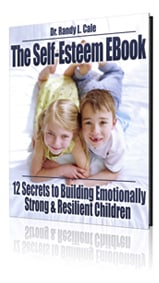Everyone is familiar with the idea of a ‘time-out.’ When used properly, giving a time-out to children will effectively help eliminate a wide range of behavioral issues. Time-outs often seem to be inadequate for certain situations, and usually, the problem is not with time-out itself; the problem is in the poor execution that many parents utilize.
In these unusual times, it is more important than ever to understand the power and importance of stepping away from challenging situations. In more ways than one, the time has come for mastering the adult ‘time-out.’
The Value Of Finding Your Calm Through a Time-Out
Very few parents come into my office and express satisfaction when they find themselves losing their temper with their kids. For many, this is an ongoing problem. I often hear the phrase, “The kids know how to push my buttons.”
The reality is that none of us have buttons. It’s just a metaphor that allows us to escape taking responsibility for our reactions. (Ouch!) We choose to get upset, raise our voice, and yell or scream when we feel we have no other options.
- “If only my kids would behave better, I would behave better.”
- “If only my kids didn’t yell, I wouldn’t have to yell at them.”
- “If only they’d listen to me, I wouldn’t have to scream to get them to pay attention.”
See the pattern here? Notice that we are always surrendering responsibility for our negative choices when we justify our behavior with this “button-pushing” discussion. At the same time, none of us feel good when we end up reacting emotionally in an angry or volatile manner.
And there is also the small matter of whether this strategy works. If yelling worked to get your kids to listen, that would be great. But it doesn’t work.
In fact, the more you yell or react today, you will be reacting and yelling more a month from now. That’s how it works.
Losing your temper is truly a ‘lose-lose’ situation. You lose. Your kids lose.
What’s The Solution? Interrupt The Reactive Patterns!
You can easily do this by choosing a ‘time-out’ for yourself. Rather than yelling, repeating yourself, or getting upset, simply take a time-out! Unless there is blood flowing or imminent risk is near, you really CAN walk away.
And you will need a real time-out that lasts a good 10 or 15 minutes. You can’t just walk away, take a breath, and return after things have calmed. While away, consider practicing Heart Rate Variability Breathing, which we discussed last week. This simple breathing approach will calm your system rapidly and prepare to enter a problem situation with calm.
Remember your history: You will not be able to think clearly if you’re hooked emotionally. Your judgment will be off, and your decisions will likely just get in the way of future civility in the home. Instead, give yourself enough time for the adult ‘time-out,’ and allow your body chemistry to calm. Your thinking and your words will be clear and calm. Your judgment will be better.
“But, But, But…
They Aren’t Listening To Me.”
Here’s the harsh truth: Your words aren’t working anyway.
I get it; the kids aren’t listening to you the way you want them to. But first things first: Look clearly at the result of all that yelling and getting upset. Over time, you just end up yelling more, getting upset more, and the kids are doing less. It’s a failing system, so please give it up.
The first step to change is for you to change. You must lead by example: that you can keep your calm even when things aren’t going your way. How would they learn to keep their cool when life disappoints or frustrates them unless you show the way?
Please trust me: you can stay clear-headed, even when chaos seems to be right in your face. Another dramatic, upset voice does not help your family get better. It only leads to more drama and more upset, with fewer and fewer results.
So try the time-out approach. Realize that nothing extreme is going to happen when you go to your bedroom with the door closed, take a ten-minute walk, or simply sit down by yourself for a few minutes and work on breathing calmly. Teach your brain, through repeated time-outs, that you can actually choose calm (and the good stuff that comes with it), rather than reactive thinking and the negative, ugly stuff that comes with that. You do have the power. Just test it.
In these uncertain times, it is essential to lead with calmness and clarity. Our future generations of children do need our guidance in choosing our emotional states wisely over the reactiveness of anger or ugliness when things are not going our way.















